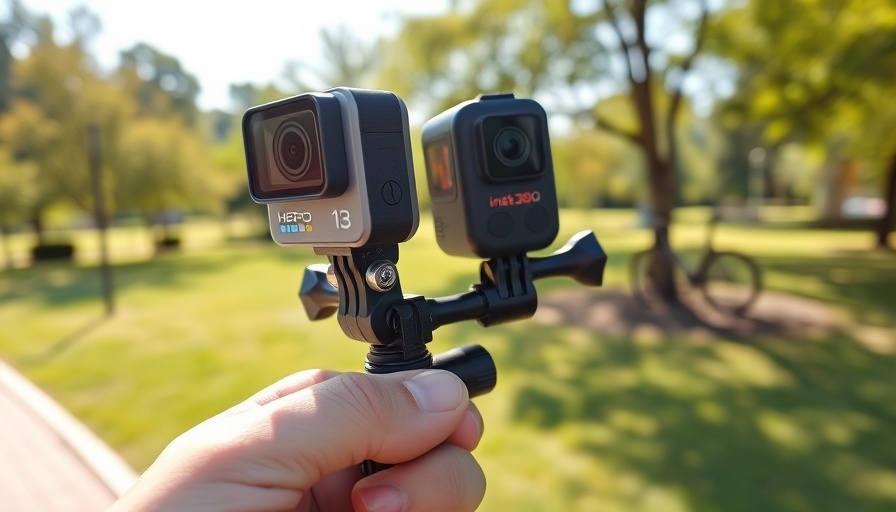
Becoming Your Own Judge: What Sports Can Teach Us
In a world overflowing with opinions and analysis, taking a step back and becoming your own judge can be refreshing. The sports arena, filled with tension and emotion, provides a unique lens through which we can explore decision-making, accountability, and even personal growth. This topic resonates deeply for fans who engage in discussing controversial calls, player ethics, and the ever-present debate about sportsmanship. So what does it mean to truly judge—to analyze, reflect, and ultimately make informed choices?
In You Be The Judge..., the discussion dives into the complexities of decision-making in sports, prompting us to reflect on what it means to judge both on and off the field.
Understanding the Impact of Decisions in Sports
Every sport has its rules, and within those frameworks, every athlete is held accountable not only for their performance but also for their conduct. Arguably, one moment can change the game entirely—a referee's call, a player’s unsportsmanlike conduct, or a coach's strategy shift. When faced with such pivotal moments, sports fans often become judges in their own right. They evaluate plays, question decisions, and analyze tactics, igniting a conversation that extends beyond the field. How can we apply this critical thinking to our everyday decisions?
Lessons from the Field: Team Dynamics and Personal Growth
Sporting environments provide rich examples of teamwork and collaboration. In watching teams navigate challenges, fans can witness firsthand how communication and relational dynamics influence outcomes. These scenarios don’t just apply to sports, but resonate with life’s broader lessons. Each athlete’s interaction illustrates how trust and understanding can lead to success, while conflicts can undermine it. Drawing parallels between sports and personal growth adds significant value to how we perceive our roles within teams—whether at school, work, or in our communities.
Deciding What Sportsmanship Looks Like
Sportsmanship is both an ethical and social construct—it goes deeper than just playing fair; it’s about respect for the game, the opponents, and oneself. But what does that really mean? Fans frequently debate what constitutes good sportsmanship, particularly as controversies arise around movements like player protests or the response to unfair calls. Engaging with these issues urges us to reassess what behavior should embody our ideals in sports. By doing so, we sharpen our definition of fairness and integrity in the context of sports and life.
Future Predictions: The Evolution of Judging in Sports
As we look ahead, advancements in technology continue to reshape the landscape of sports decision-making. Tools like instant replay and advanced analytics are changing how judges—both on the field and in the stands—interpret the action. This evolution raises essential questions about the integrity of these technologies. Will they enhance our ability to judge, or will they eventually overshadow the human elements that are so critical to the experience of sports? These discussions reinforce the need for a balanced perspective as the nature of officiating continues to evolve.
The Emotional Connection: How We Relate to Athletes
The bond between fans and athletes often transcends numbers on a scoreboard. As spectators render judgments on plays and performances, they also connect emotionally with the athletes themselves. This connection brings to light the human experience of failure, perseverance, and success. When fans empathize with athletes, they create a richer understanding of the pressures involved in competition. The emotional highs and lows can teach us valuable lessons about resilience and the capacity to handle scrutiny. As we engage with different athletes' journeys, we learn how to embrace our own challenges.
Engaging with the Conversation: Become Your Own Judge
Ultimately, the art of being your own judge in sports prompts us to reflect on our perspectives and decisions—on and off the field. By analyzing and engaging with complex situations, we cultivate a habit of thoughtful examination, considering not only our judgments but the values underlying them. Sports teach us to grow and learn, positioning us to make informed choices moving forward.
Now, as fans of the craft, it’s time to take an active role in this ongoing dialogue. Consider how your judgments shape your experiences within sports, be it through social media, personal conversations, or community discussions. How can we broaden our lens further and deepen our understanding of integrity, respect, and progress in the world of sports?
 Add Row
Add Row  Add
Add 




 Add Row
Add Row  Add
Add 
Write A Comment